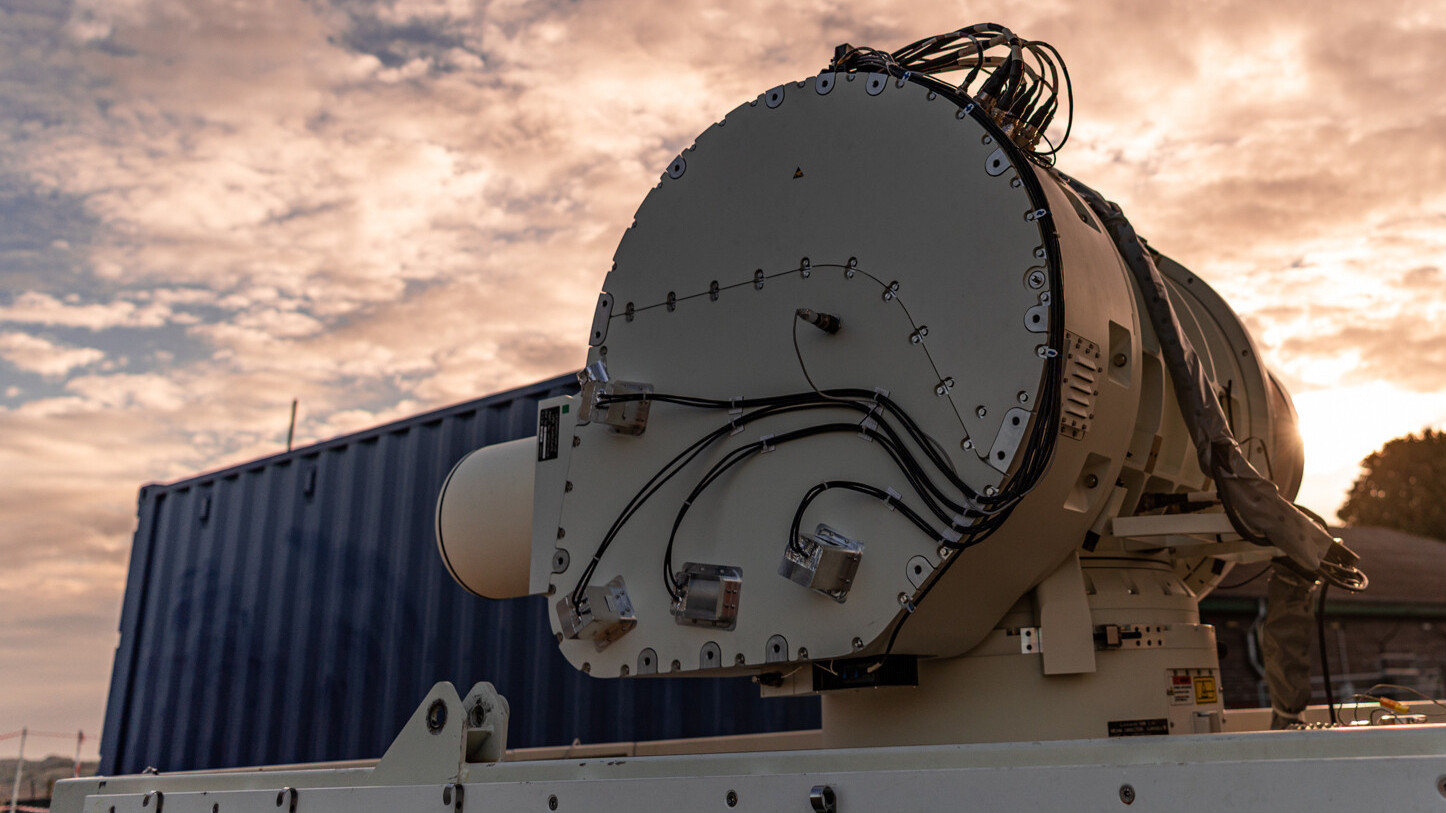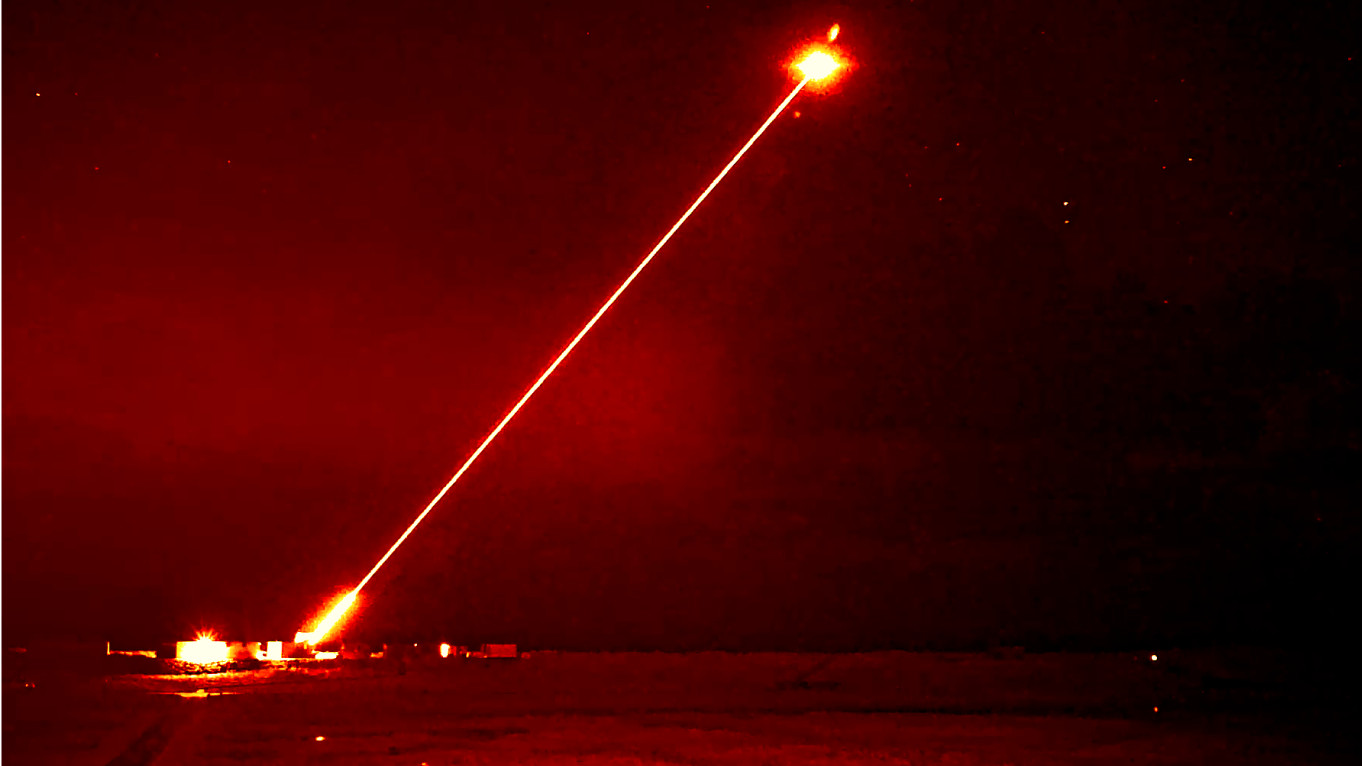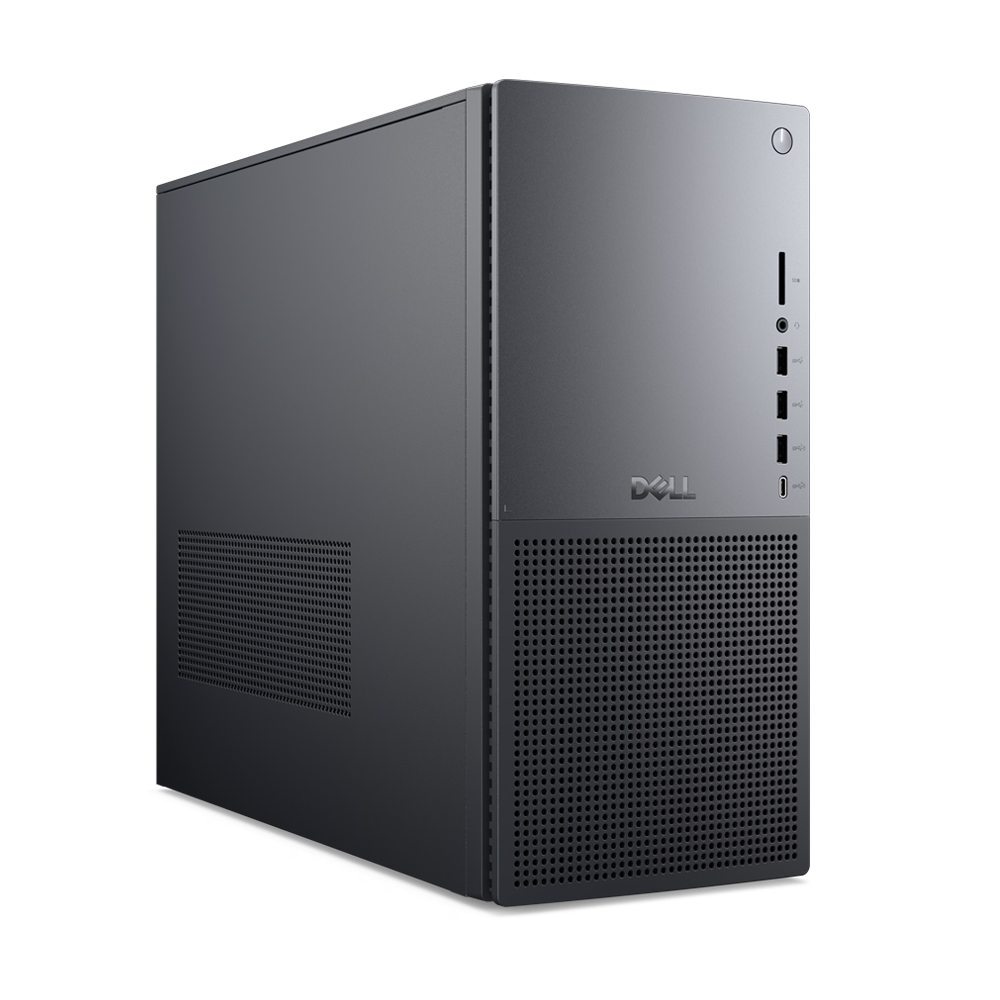Game of drones – DragonFire laser is so accurate it can hit a coin from a kilometer away, and even 400mph drones didn't stand a chance
Laser directed energy weapon coming to UK destroyer in 2027

Sign up for breaking news, reviews, opinion, top tech deals, and more.
You are now subscribed
Your newsletter sign-up was successful
- DragonFire laser defense system has just been tested
- It can shoot down drones moving at 400mph with incredible accuracy
- With a contract signed for $415 million (£316 million), it'll be on board a UK destroyer in 2027, with a rapidly accelerated deployment timeframe
DragonFire, a new laser defense system, has been successfully tested in the UK and proved its accuracy for taking down even fast-moving drones, with a contract now in place to provide the Royal Navy with the weapon.
As Tom's Hardware reports, the UK government just announced the $415 million (£316 million) contract with MBDA that'll ensure the laser-directed energy weapon (LDEW) system is on board a Royal Navy Type 45 destroyer by 2027 (five years ahead of the originally anticipated timeframe).
The recent test runs of DragonFire at the UK Ministry of Defence's (MoD) Hebrides range witnessed the laser taking out drones flying at up to 650km/h (just over 400mph). The MoD tells us that this LDEW can hit a Pound coin (a little smaller than a US Quarter) from a kilometer away, which is a mind-boggling feat.
This isn't just about accuracy, though, but cost efficiency, as the laser costs around £10 per shot (approximately $13). Compare that to the price tag attached to a missile for intercepting a drone, which "cost upwards of hundreds of thousands of pounds per shot," the MoD notes. And obviously, when you consider the potential scale of drone attacks, that quickly mounts up.
Minister for Defence Readiness and Industry, Luke Pollard MP, stated: "This high-power laser will see our Royal Navy at the leading edge of innovation in NATO, delivering a cutting-edge capability to help defend the UK and our allies in this new era of threat."
The contract to deploy DragonFire will involve the creation of some 590 jobs in the UK.
Joint effort

The DragonFire trials were conducted by the UK's Defence Science and Technology Laboratory, in conjunction with MBDA, Leonardo and QinetiQ – the latter two being the partners who are working with MBDA to develop the system for readiness in 2027.
Sign up to the TechRadar Pro newsletter to get all the top news, opinion, features and guidance your business needs to succeed!
In a press release from last year, MBDA explained, "The UK DragonFire programme brings together the best of UK industry. It leverages MBDA's decades of weapon system manufacturing expertise, Leonardo's position as a world-leading authority in laser technology, electro-optics, and advanced targeting, and QinetiQ's experience as the only UK company to successfully develop and safely operate high-energy laser sources in the UK and coherent beam-combining technology."
While only the first ship fit is confirmed, other Type 45 destroyers (there are six of these Daring-class anti-aircraft and anti-missile vessels in the Royal Navy fleet) are expected to get DragonFire in the future beyond 2027.
Potential drawbacks to the laser system are the weather and possible atmospheric interference, and the true test will be how DragonFire performs in real-world conditions on board that first destroyer.
The other obvious caveat here is the amount of power needed for this LDEW, which limits DragonFire to installations where there's plenty of wattage on tap, such as on board a ship, as opposed to a nimbler armored army vehicle on land – but more mobile deployments are planned eventually.
If you're curious as to what the power consumption of this laser is, a previous trial at Porton Down in October 2022 used "in the order of 50kW of power" we're told.

➡️ Read our full guide to the best computers
1. Best Windows:
Dell Tower Plus
2. Best Mac:
Apple Mac mini M4
3. Best Mac AIO:
Apple iMac 24-inch (M4)
Follow TechRadar on Google News and add us as a preferred source to get our expert news, reviews, and opinion in your feeds. Make sure to click the Follow button!
And of course you can also follow TechRadar on TikTok for news, reviews, unboxings in video form, and get regular updates from us on WhatsApp too.
Darren is a freelancer writing news and features for TechRadar (and occasionally T3) across a broad range of computing topics including CPUs, GPUs, various other hardware, VPNs, antivirus and more. He has written about tech for the best part of three decades, and writes books in his spare time (his debut novel - 'I Know What You Did Last Supper' - was published by Hachette UK in 2013).
You must confirm your public display name before commenting
Please logout and then login again, you will then be prompted to enter your display name.